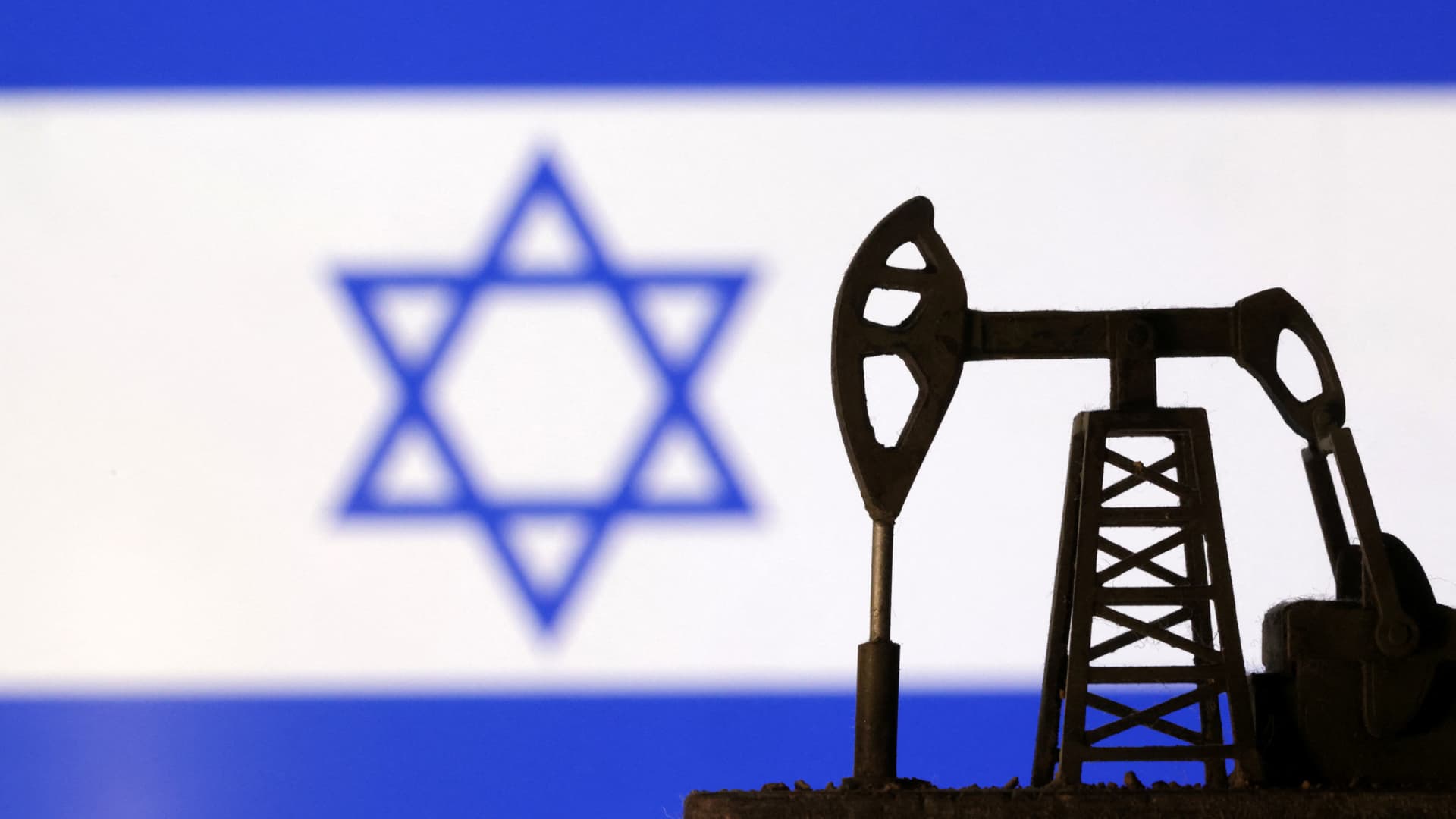A shock attack on Israel by Hamas has caused a spike in oil prices and stoked volatility in the energy market, and Bank of America said things can get much worse from here. The Wall Street side of the Charlotte-based bank laid out scenarios where oil could hit $150 per barrel — or even $250 — depending on how the war shakes out. The international oil benchmark Brent crude held around $88 Wednesday, after trading closer to $94 late last week. U.S. West Texas Intermediate crude futures hovered near $84 a barrel. Investors have been worried that the Israel-Hamas war could escalate into a wider conflict in the Middle East, the world’s biggest oil-supplying region, causing potential supply disruptions. Bank of America sees any escalation involving Iran triggering a jump to $120 to $130 per barrel. @CL.1 1M mountain U.S. West Texas Intermediate crude futures Iran is a major oil producer and key backer of Hamas, the Palestinian militant group designated by the U.S. as a terrorist organization. Israel’s military has accused Iran of ordering attacks by militia groups it supports in Yemen, Iraq and Lebanon, supplying Hamas with intelligence and deploying an online messaging campaign to strengthen anti-Israel sentiment. If a physical supply disruption occurs because of attacks on energy infrastructure, oil could surge above $130 a barrel, Bank of America said. If an escalation reduced global supplies by two million barrels per days, for example, oil might even rise above $150 per barrel, it said. “Past energy supply shocks such as the Arab oil embargo in 1973 or the 1979 Iran revolution led to triple-digit percentage increases in oil prices,” BofA said in a note. “These asymmetric risks have already altered the volatility smile in global oil markets and turned it into a smirk, with oil risk-reversals now showing a pronounced call skew.” $250 oil? Iran and Israel have long been at odds, with Tehran celebrating but denying involvement in the Hamas terror attacks of Oct. 7. Tehran backs Hamas, miltants in Syria and the Lebanese militant group Hezbollah — all three of which have fired rockets into Israel since early October. Bank of America warned that any retaliation against Tehran could risk the passage of vessels through the Strait of Hormuz, a vital channel the world’s crude. If the strait is closed, oil prices can spike above $250 per barrel, the bank said. But risks abound even beyond Hormuz, BofA said. “While keeping the Strait of Hormuz open is key to oil market stability because 17mn barrels cross it every day and prices could spike above $250/bbl if it shuts down for an extended period of time, there are plenty of other energy choke points,” the firm said.
How oil could spike to $150, even $250 if Israel-Gaza war escalates, according to Bank of America










